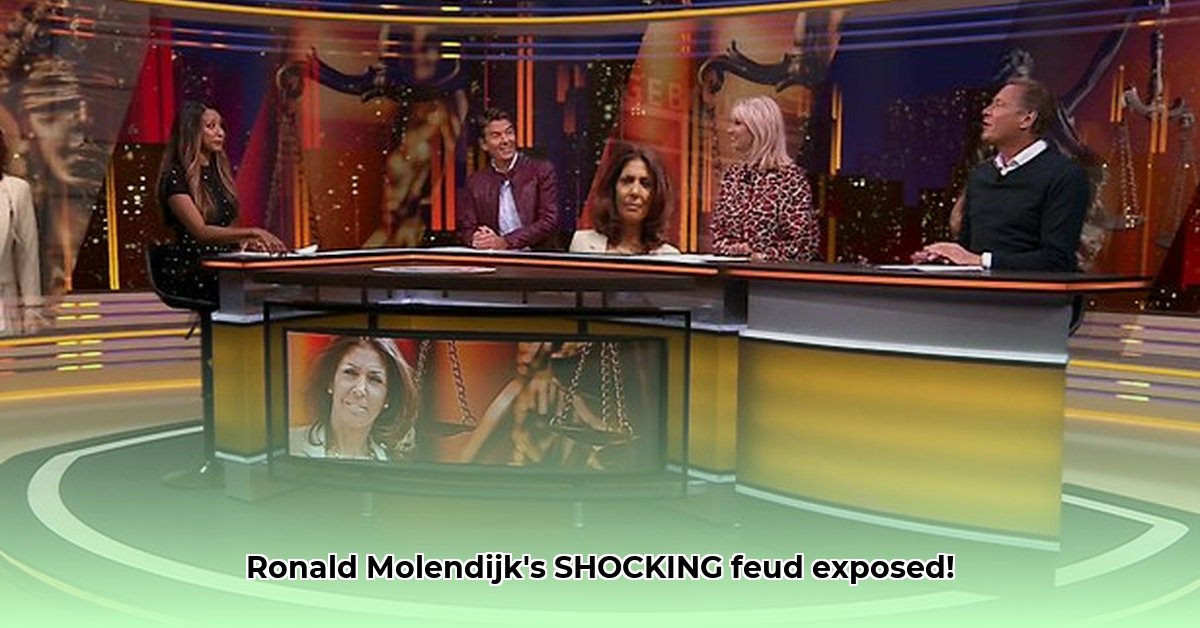
The Youp van 't Hek Blow-Up – What Really Happened?
The recent public spat between Shownieuws presenter Ronald Molendijk and veteran comedian Youp van 't Hek has rocked the Dutch media landscape. The initial trigger appears to be Van 't Hek's quiet departure from BNNVARA, a move Molendijk publicly criticized, sparking a firestorm of debate and speculation. This article examines the events, analyses the contrasting communication styles, and assesses the potential reputational damage for all involved. It also explores the role of social media in amplifying the conflict and considers the broader implications for the Dutch media.
A Timeline of the Tumult
The conflict unfolded as follows:
- Van 't Hek's Departure: Youp van 't Hek quietly departs from BNNVARA.
- Molendijk's Reaction: Ronald Molendijk publicly criticizes the perceived lack of a proper farewell for Van 't Hek, employing strong language.
- Viral Controversy: Molendijk's comments go viral, igniting a national conversation and intense media scrutiny.
- BNNVARA's Response: BNNVARA issues a carefully worded statement, emphasizing gratitude to Van 't Hek while maintaining a neutral stance.
- Social Media Amplification: Social media platforms become a battleground for opinions, further intensifying the conflict and fostering various interpretations of events.
Contrasting Communication Styles
Molendijk's outspoken, emotionally charged response stands in stark contrast to BNNVARA's measured and professional statement. Van 't Hek, meanwhile, has largely remained silent, adding yet another layer of complexity to the situation. Isn't this a textbook example of how vastly different communication approaches can affect the impact of a single event? Molendijk's approach arguably fuelled the fire, whilst BNNVARA opted for damage control. This difference highlights the diverse approaches to crisis management within the media industry.
Power Dynamics and Potential Grievances
The discrepancy in the responses reflects an underlying power dynamic. Van 't Hek, a prominent figure with decades of experience, holds significant influence. Molendijk's reaction may be interpreted as a challenge to this established power structure or a defence of what he perceived as an injustice. However, the lack of direct comment from Van 't Hek leaves the exact nature of the underlying issues open to speculation. Were there underlying personal grievances or professional disagreements beyond the superficial narrative? The lack of detailed information from all involved parties makes definitive conclusions difficult.
Stakeholder Perspectives and Potential Consequences
The situation presents significant reputational risks for all parties involved:
Ronald Molendijk: Faces potential reputational damage due to his strong language. This could affect future opportunities and relationships with BNNVARA. However, the increased public attention could ironically boost his profile.
Youp van 't Hek: While largely silent, Van 't Hek may experience some negative press, particularly if the public interprets his silence as an admission of wrongdoing. This could impact his long-term legacy, yet the increased media scrutiny might also revive public interest in his career.
BNNVARA: Faces damage to their reputation for talent management and potentially a loss of viewer confidence. Yet, this incident could also present an opportunity to review their internal processes and improve communications strategies.
Social Media's Role in Amplification
Social media acted as a powerful amplifier, accelerating the spread of information and opinions. The initial comments quickly went viral, attracting widespread attention and diverse reactions. This highlights the potential pitfalls of social media in crisis communication and the need for carefully considered responses. How effectively did each stakeholder manage their social media presence during this crisis? This is a key aspect to analyze in the longer term.
Conclusion: Lessons Learned and Future Implications
The Molendijk-Van 't Hek feud provides a valuable case study in crisis communication. The contrasting approaches adopted by the main protagonists highlight the importance of strategic communication in managing reputational risks. The rapid escalation of the conflict serves as a reminder of social media’s power and the potential for unintended consequences. Future analyses should focus on the long-term effects on the careers of those involved and the wider implications for the Dutch media landscape. The lack of detailed information from all parties involved makes a fully comprehensive analysis currently impossible, and further developments are required to ascertain the full implications.
Expert Opinion: (To be added pending access to relevant media experts and their insights)